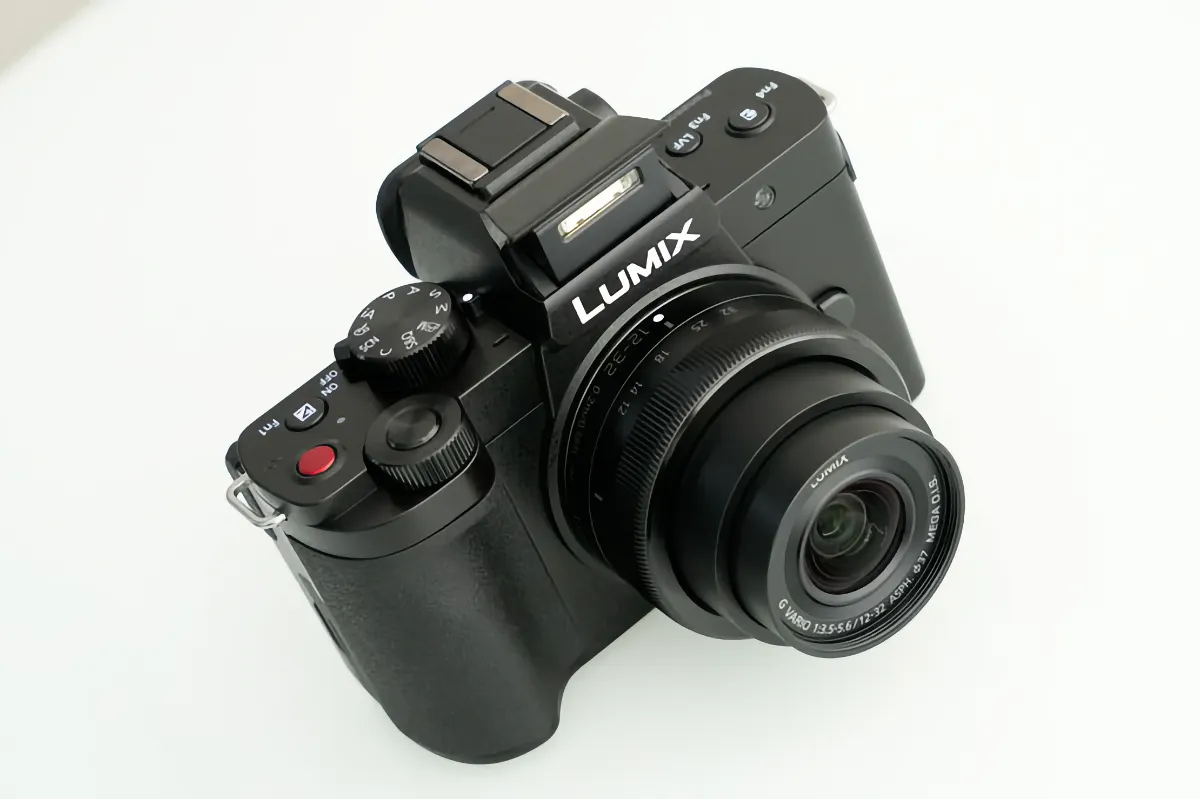
The Olympus OM-D E-M10 Mark III is an entry-level mirrorless camera that boasts professional-grade performance. Equipped with 5-axis image stabilization, a 16MP Live MOS sensor, and the TruePic VIII processor, it delivers outstanding image quality. In this review, we’ll take a detailed look at the E-M10 Mark III’s performance in real-world professional shooting scenarios.
📊 Olympus OM-D E-M10 Mark III S Specifications
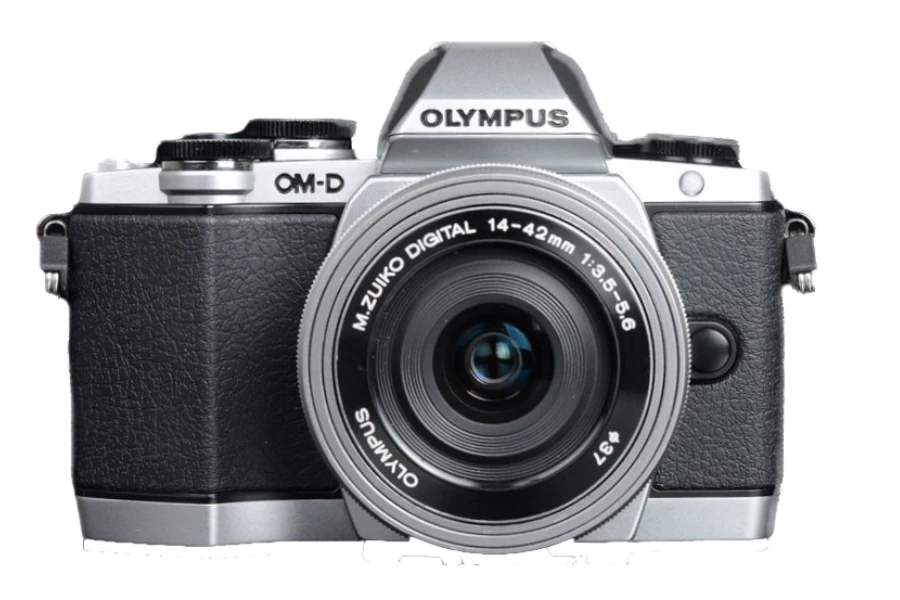
| Specification | Details |
|---|---|
| Sensor | 16MP Live MOS sensor |
| Processor | TruePic VIII |
| Image Stabilization | 5-axis in-body image stabilization |
| Autofocus | 121-point contrast-detect AF |
| Continuous Shooting | Up to 8.6fps |
| Video | 4K 30p, Full HD 60p |
| Viewfinder | 2.36M-dot OLED EVF |
| Monitor | 3-inch 1.04M-dot tilting touch LCD |
| Weight | Approx. 410g (including battery and memory card) |
🎨 Design and Ergonomics: Small but Mighty Camera
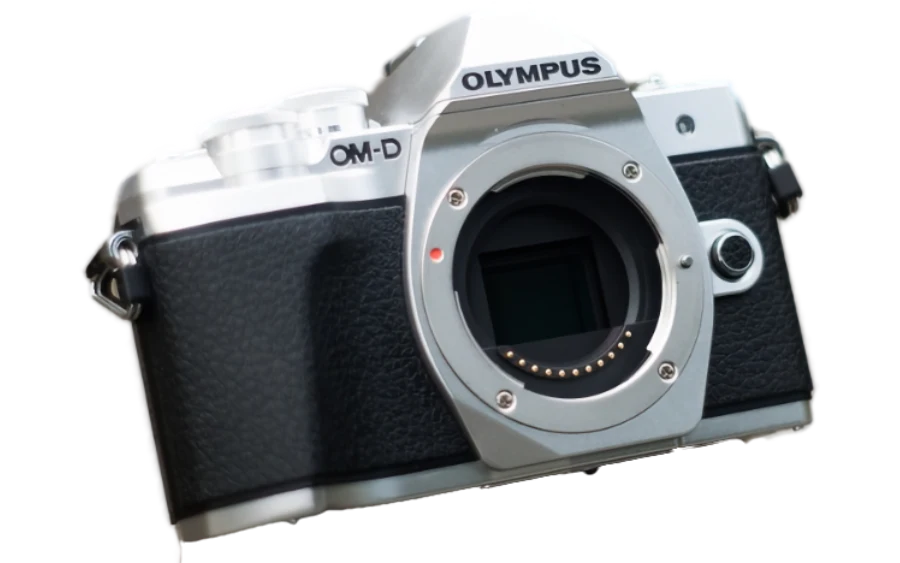
Compact yet Rugged Body
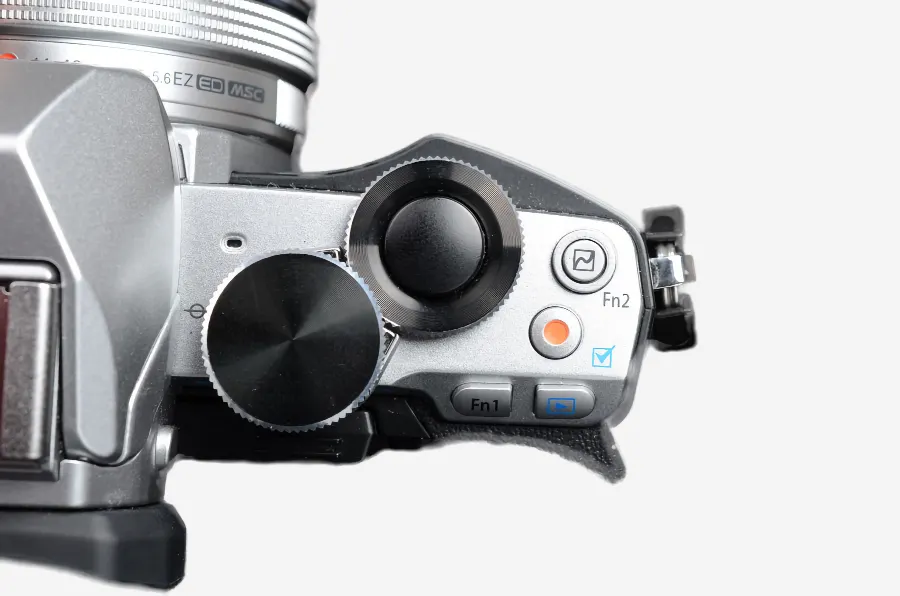
The Olympus OM-D E-M10 Mark III S packs powerful performance into a small and lightweight body. Despite weighing only 410g, it features a sturdy metal construction that ensures reliable use. Its compact size and weight are particularly advantageous for professional shooting environments, allowing for easy portability.
Ergonomic Grip Design
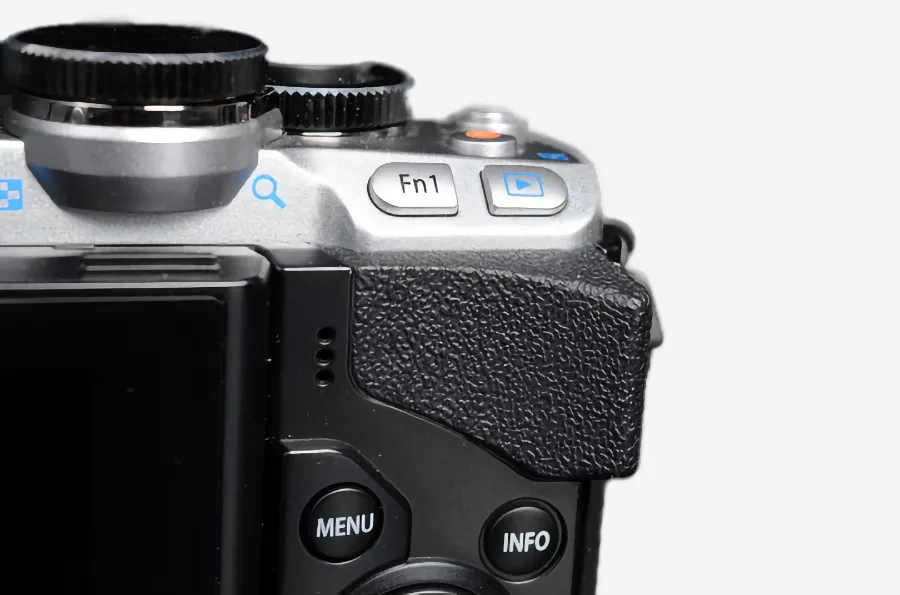
Despite its small size, the E-M10 Mark III offers excellent grip comfort. The substantial front grip and rear thumb rest provide stable handling. This design reduces fatigue during extended shooting sessions and improves one-handed operation.
Intuitive Control Layout
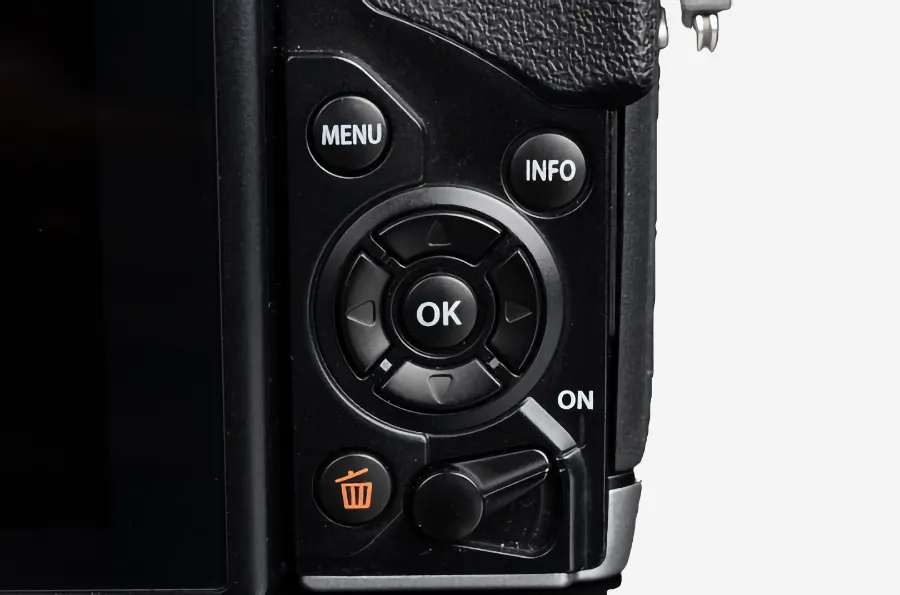
The dials and buttons on the camera’s top and rear are designed for easy access and operation. The dual control dials, a feature preferred by professionals, allow quick adjustments to aperture and shutter speed.
📸 Image Quality: Performance Beyond Entry-Level
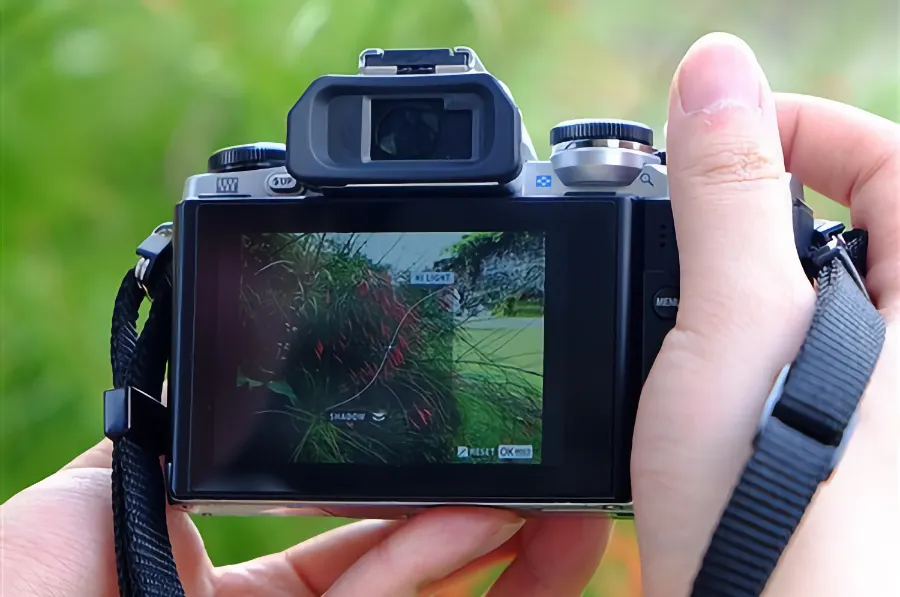
The Potential of the 16MP Sensor

While the 16MP Live MOS sensor in the E-M10 Mark III S may have lower resolution compared to the latest high-resolution sensors, it demonstrates excellent performance in real-world use. When paired with Olympus’s impressive lens lineup, it produces sharp and detailed images.
The Power of the TruePic VIII Processor

The E-M10 Mark III S uses the same TruePic VIII image processor as Olympus’s flagship model, the E-M1 Mark II. This processor delivers fast image processing along with superior noise reduction and color reproduction. As a result, you can obtain clean and crisp images up to ISO 1600.
Low Light Performance

The E-M10 Mark III S demonstrates impressive performance in low-light environments, such as a dimly lit beach at sunset. It provides usable image quality up to ISO 3200, and if necessary, even ISO 6400 can be utilized. When combined with the 5-axis image stabilization, you can experience even better low-light performance.
🔍 Autofocus System: Fast and Accurate Focus
121-point Contrast AF
The E-M10 Mark III S employs a 121-point contrast AF system. While it may be slightly slower than phase-detection AF, it excels in accuracy.
Performance in Real Shooting Environments
Even when photographing fast-moving subjects like jazz performances, the E-M10 Mark III’s AF system demonstrates stable performance. It accurately tracks subjects even in low light conditions, delivering sharp focus in most shots.
AF Modes and Features
The E-M10 Mark III S offers various AF modes. In addition to Single AF, Continuous AF, and Manual Focus, it supports Face/Eye Detection AF. This is particularly useful for portrait photography and helps quickly focus on the main subject during performance shoots.
🌠 5-axis Image Stabilization: The E-M10 Mark III S’s Core Weapon
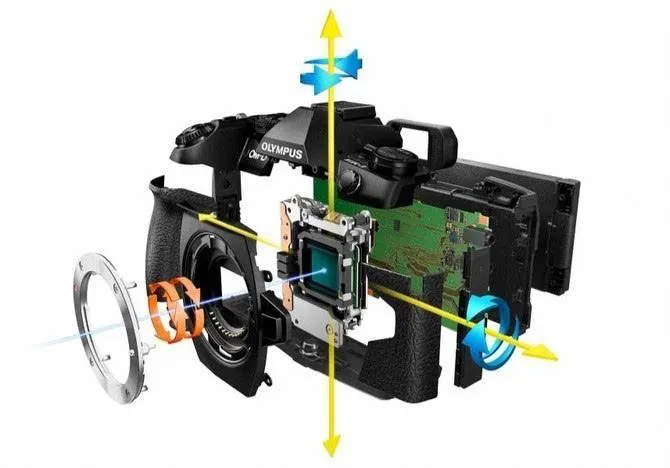
Powerful 5-axis IBIS System
The 5-axis in-body image stabilization (IBIS) system in the E-M10 Mark III S is one of its greatest strengths. This system provides compensation for vertical shift, horizontal shift, roll, pitch, and yaw.
Real-world Experience
In actual shooting, the effect of the 5-axis IBIS is remarkable. You can obtain sharp, shake-free images even at slow shutter speeds of 1-2 seconds. This allows you to maintain low ISO settings while capturing clean images in low-light environments.
Utilization in Video Recording
The 5-axis IBIS is also a significant advantage in video recording. It enables stable footage even when shooting handheld, allowing you to produce professional-looking results without additional stabilization equipment.
🎥 Video Capabilities: 4K Support in an Entry-level Camera
4K Video Recording
The E-M10 Mark III S supports 4K 30p video recording. The ability to support 4K resolution in an entry-level camera is a significant advantage. Combined with Olympus’s unique color processing, you can create beautiful videos with high resolution.
Full HD High-speed Recording
In addition to 4K, 60p recording is possible at Full HD resolution. This is useful for creating smooth slow-motion videos or capturing fast movements naturally.
📱 User Interface: Designed for Both Beginners and Professionals
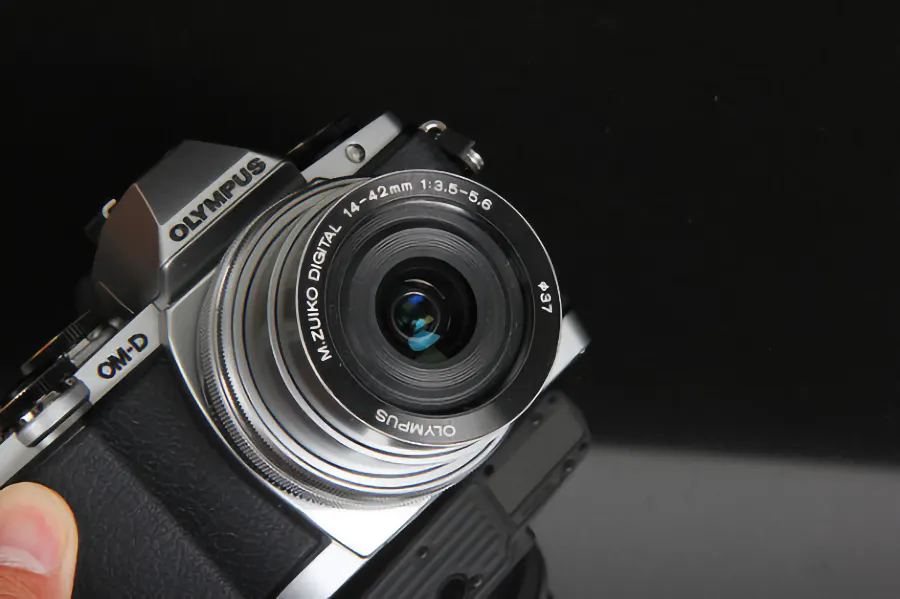
Intuitive Touchscreen Operation
The E-M10 Mark III S features a 3-inch 1.04M-dot tilting touch LCD. This touchscreen is highly responsive and intuitive. It allows easy operation of focus point selection, shutter release, menu navigation, etc., greatly enhancing the user experience.
AUTO Mode for Beginners
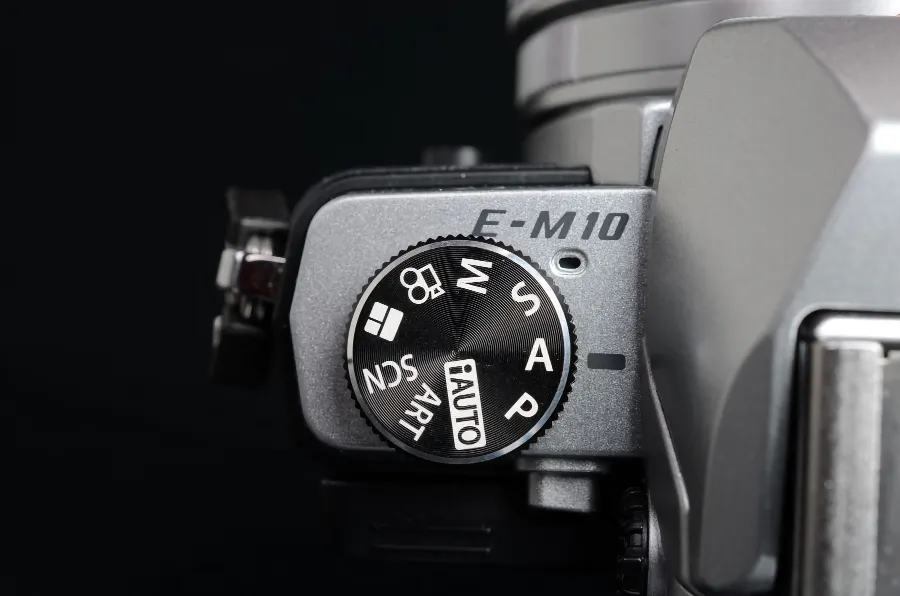
For beginners unfamiliar with camera operations, the E-M10 Mark III offers an enhanced AUTO mode. In this mode, the camera analyzes the scene and automatically selects the optimal settings. Additionally, the Live Guide feature helps beginners easily achieve their desired effects.
Customization for Advanced Users
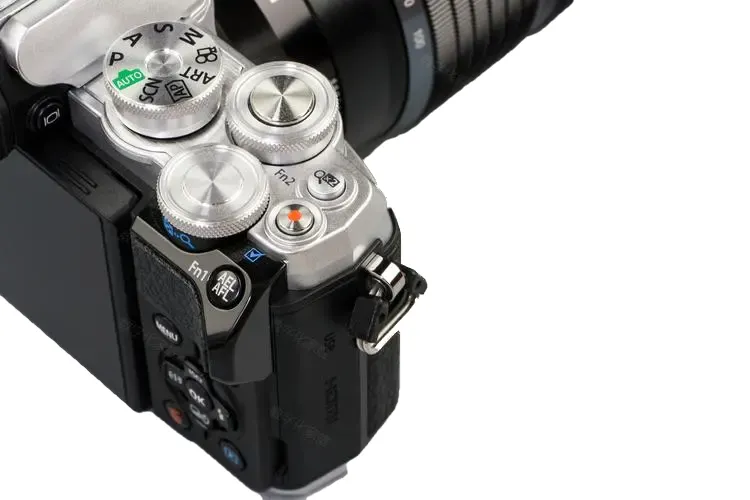
For professionals and advanced users, the E-M10 Mark III S provides various customization options. You can optimize the camera to suit your shooting style through button function changes, custom mode settings, and more.
🔋 Battery Life and Connectivity: Design Focused on Practicality
Battery Performance
The E-M10 Mark III S uses the BLS-50 battery and can take about 330 photos on a single charge. This is an average battery life for a mirrorless camera. It’s advisable to prepare spare batteries for extended shooting sessions.
Wireless Connectivity
Built-in Wi-Fi allows easy connection to smartphones or tablets. Using the Olympus OI.Share app, you can perform remote shooting and instantly transfer captured images for sharing on social media.
USB Charging Support
The E-M10 Mark III S supports battery charging via USB. This is a very useful feature for travel or outdoor shooting, allowing you to charge the camera using a power bank or laptop without a separate charger.
🏆 Comparison with Competitors: The Position of the E-M10 Mark III
Comparison with Olympus OM-D E-M10 Mark IV
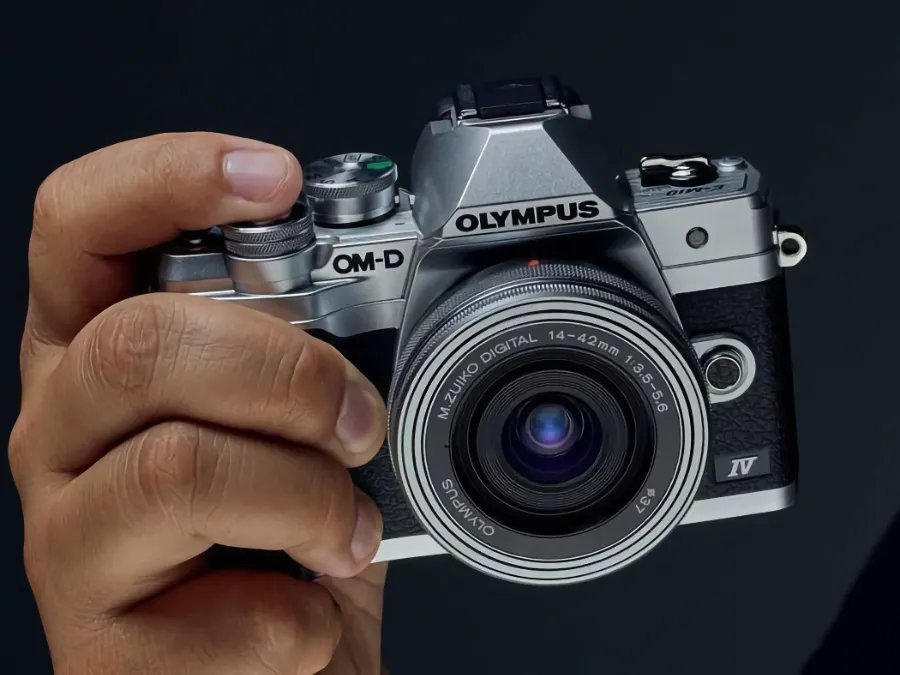
The E-M10 Mark IV is the successor to the Mark III S, featuring upgrades such as a 20MP sensor, improved image stabilization, and a 180-degree tilting screen. However, the Mark III still provides excellent performance and high value for its price.
Comparison with Sony A6100

The Sony A6100 is an APS-C sensor mirrorless camera in a similar price range to the E-M10 Mark III S. While the A6100 offers a larger sensor and superior AF performance, the E-M10 Mark III differentiates itself with a more compact size and powerful image stabilization.
Comparison with Fujifilm X-T200

The Fujifilm X-T200 is known for its retro design and excellent color reproduction. While the X-T200 uses a larger APS-C sensor, the E-M10 Mark III s offers faster continuous shooting speed and powerful image stabilization.
💡 Pros and Cons Analysis: Strengths and Weaknesses of the E-M10 Mark III S
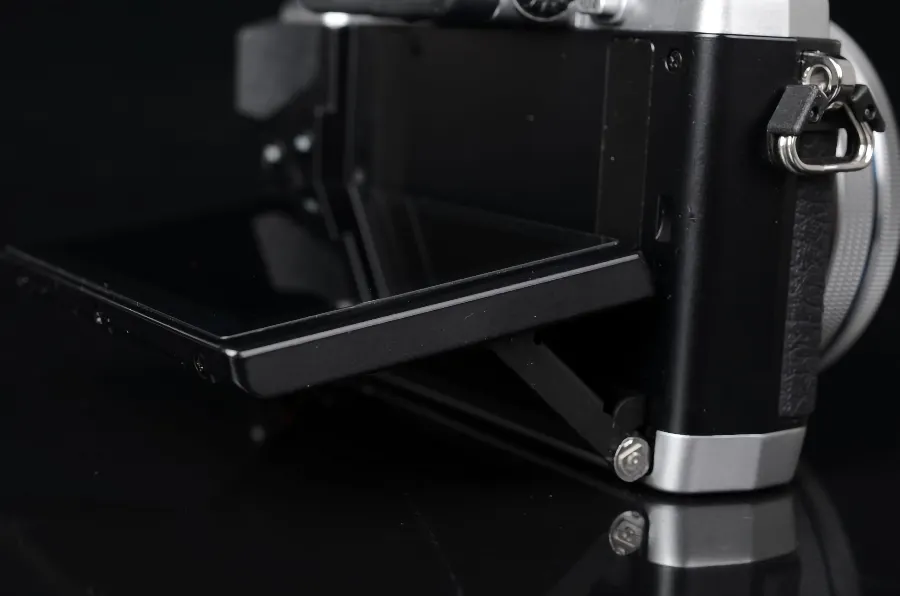
Pros
- Powerful 5-axis image stabilization system
- Compact yet rugged body design
- Excellent image quality and color reproduction
- Intuitive user interface
- 4K video support
Cons
- Resolution limitation due to 16MP sensor
- Limited continuous AF performance due to lack of phase-detection AF
- Absence of weather sealing
- Somewhat short battery life
🎭 Use Cases: Utilizing the E-M10 Mark III S
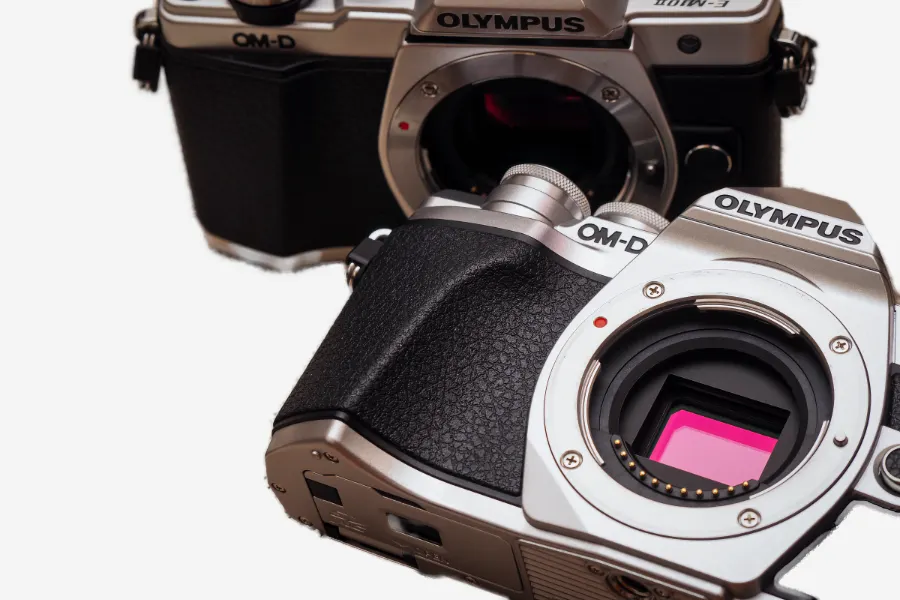
Travel and Everyday Photography
The compact size and light weight make the E-M10 Mark III ideal for travel and everyday shooting. Thanks to its powerful image stabilization, you can obtain sharp photos without a tripod, which is very convenient.
Landscape and Architectural Photography
Despite its 16MP sensor, the E-M10 Mark III shows excellent performance in landscape and architectural photography. When combined with Olympus’s impressive lens lineup, you can obtain sharp and detailed images.
Performance and Event Photography
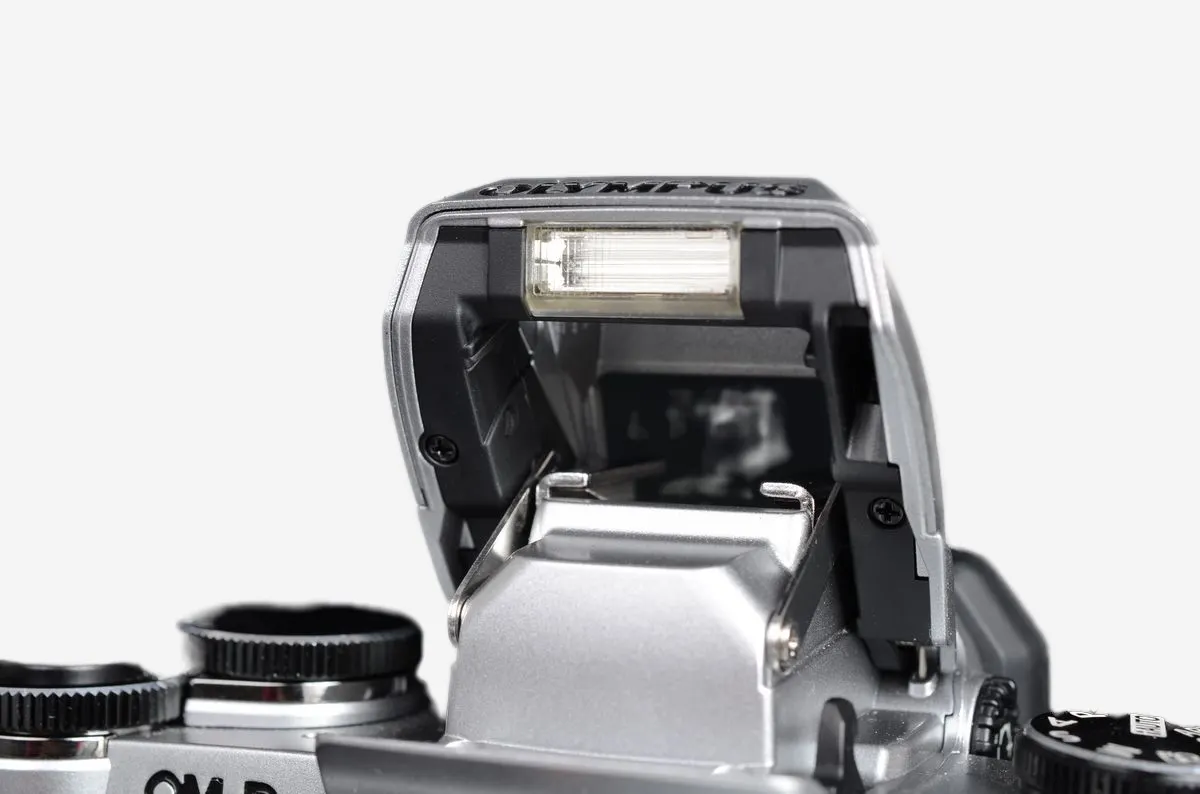
As seen in the jazz performance shooting case, the E-M10 Mark III performs excellently even in low-light environments. Thanks to its 5-axis image stabilization and superior high-sensitivity performance, you can obtain sharp, shake-free photos even in dark environments.
Video Production
With 4K video support and 5-axis image stabilization, the E-M10 Mark III is suitable for video production. It’s ideal for creating travel vlogs or recording daily life.
🏁 Conclusion: Olympus OM-D E-M10 Mark III S - Beyond Entry-Level
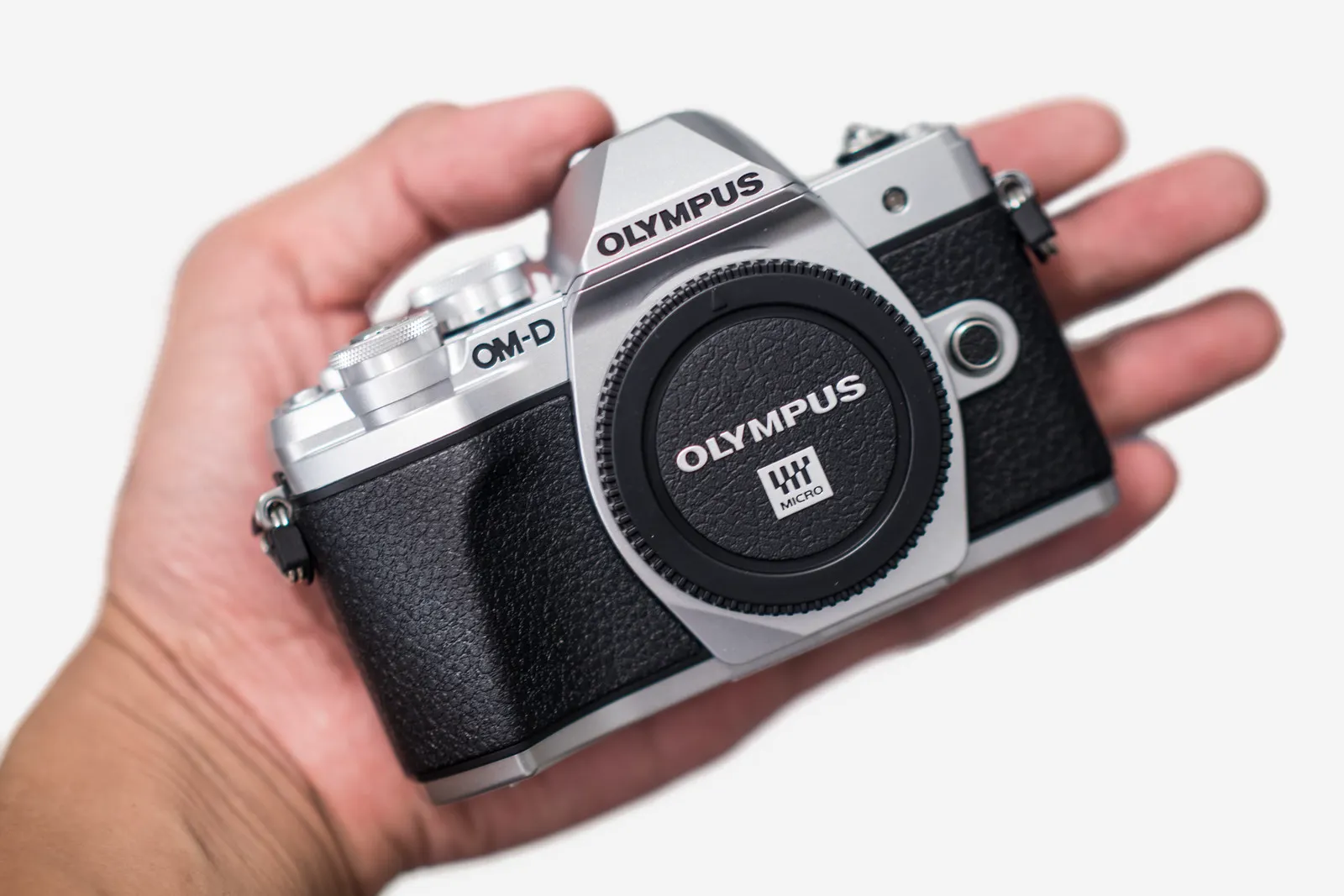
The Olympus OM-D E-M10 Mark III S is an entry-level mirrorless camera, but its performance is far from entry-level. Its powerful 5-axis image stabilization, excellent image quality, compact design, and user-friendly interface are its major strengths.
Of course, there are limitations such as the 16MP sensor and limited continuous AF performance. However, these drawbacks are not significant issues in most general shooting situations and are well compensated by the E-M10 Mark III’s other advantages.
In particular, the E-M10 Mark III demonstrates excellent performance in various situations, from travel and everyday shooting to landscape photography and light professional work. It’s a versatile camera that can satisfy both beginners and advanced users.
Considering its performance relative to its price, the Olympus OM-D E-M10 Mark III is a very attractive choice. It’s highly recommended for those starting with mirrorless cameras, as well as professionals looking for a lightweight second body. With the E-M10 Mark III, your photographic journey will become more enjoyable and fruitful.
See the OM-D E-M10 Mark III in detail on the official Olympus website Experience a new world of photography with the E-M10 Mark III S. It will be a powerful and compact companion that allows you to freely express your creativity.


